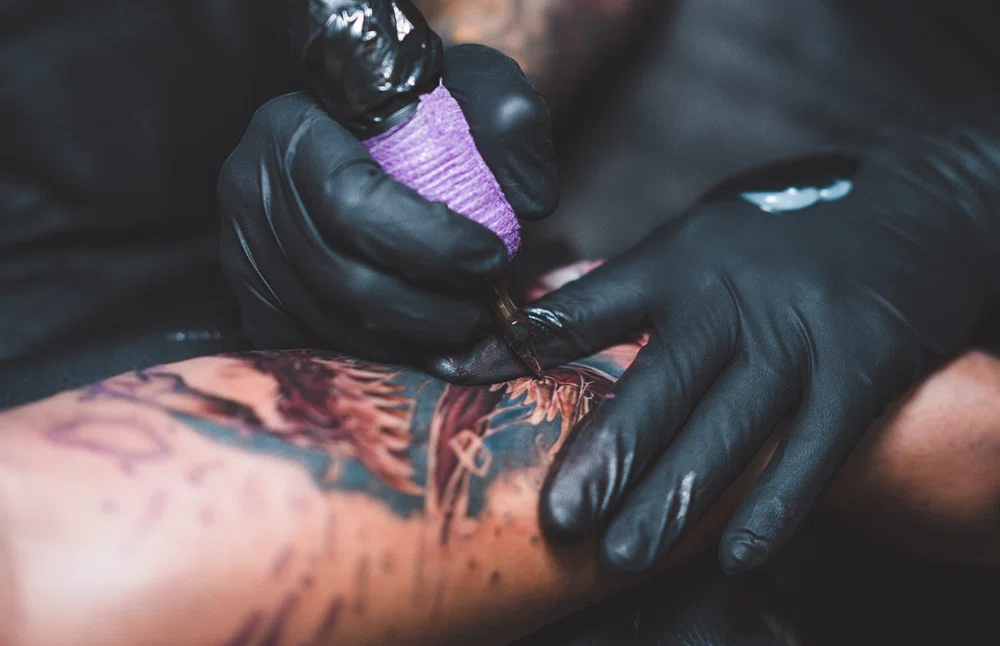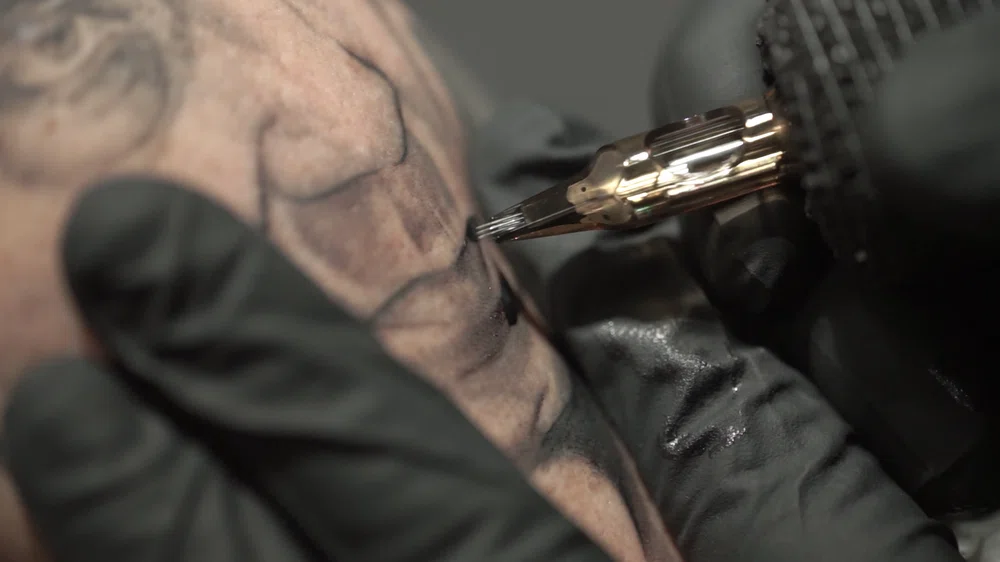When should you touch up a tattoo and when not?
How to set boundaries on your work and avoid overdoing touch-ups.
03 May 2024
There is a growing rumor among some clients that tattoo artists have an obligation to review the tattoo as many times as necessary and for free. However, this is not entirely true.
While some touch-ups are necessary and are often included in the initial price of the tattoo, tattoo artists are not always obliged to do touch-ups for free. It depends on the specific circumstances of the tattoo and the agreement between the artist and the client.
Well, not all the rumours are true and here we will expose a myth: tattoo artists are not always obliged to do touch-ups to tattoos.
Although many believe otherwise, the reality is that if the tattoo is well done and well healed, there would be no need to go over it. But there are some exceptions to this rule.
Do you want to know which ones? Let's go for it.
When is a review necessary?
Tattoo revision is not always necessary. In principle, if the tattoo artist has done their job well and the client has followed the healing procedures, there should be no need for touch-ups.
However, it is possible that some very fine lines or colours have not been injected properly and the client may request a revision. This is a common issue that many tattoo artists experience since every skin is different and may have a different response to pigments.
Furthermore, the need for touch-ups may also depend on the style of tattoos you do. For example, in colour Realism, the skin is more traumatized than with other types of tattoos because you need to make multiple passes over the same area, which can cause injuries.
These wounds can produce scabs during the healing process, which may prevent the ink from permeating well into the skin, resulting in the colour not being quite right. Therefore, it's important to assess each situation and determine if a touch-up is necessary or not.
In these cases, the tattoo artist can offer a courtesy touch-up included in the price of the original tattoo, but this is never an obligation.
It's important to note that a well-done tattoo, following proper aftercare procedures, should not require touch-ups.
However, if there are issues with fine lines or colour not being properly injected, the client may request a touch-up. It's important to remember that different skin types and responses to pigments can affect the outcome of a tattoo.
If the original tattoo was poorly done, it is the responsibility of the tattoo artist to fix it without charging the client.
It's important for tattoo artists to set limits for themselves and not overwork, as well as acknowledge their own limitations and seek advice from colleagues when needed. Being a good professional means being consistent with your practice and taking responsibility for your work.
If you want to learn more about tattooing, 10 Masters offers online courses to help you learn the secrets of the profession. Click here to Learn How to Tattoo like a Professional!

Recommended period of time for review
The general consensus is that a tattoo is typically considered healed within the first 15 to 20 days, although some may argue for a longer period depending on the intricacy of the design.
Ultimately, the healing time can vary depending on the individual's skin type and the aftercare process they follow. To learn more about proper healing and aftercare techniques, you can refer to our post on How to take care of a tattoo?
Once the tattoo is fully healed, it is easier to identify any errors that may have occurred during the initial process. It is advisable to wait until the tattoo is fully healed before attempting any revisions.
If a client requests a revision after six months or more, the revision would no longer be considered a courtesy, and the artist should charge for the work.
To avoid any potential conflicts with clients, it is important to make the revision policy clear from the outset and communicate it to clients before they agree to have work done.
Other reasons and types of retouchings

Reviews or touch-ups may be required for different reasons, as we previously explained.
Sometimes, despite following all the necessary procedures, there may be some issues with the tattoo, and it will need to be touched up.
On the other hand, some clients may want to revive an old tattoo, which may require a complete re-tattoo. In some cases, clients may approach you to fix the mess that other tattoo artists have made.
Regardless of the reason, it is important to note that clients should never expect these touch-ups or re-tattoos to be done for free. It may seem unreasonable, but there are people who expect it.
However, any job requires time, effort, and material costs, and if you have to re-do a job that is not your fault, you should charge for it.
Considerations when doing touch-ups
The healing process of a touch-up is identical to that of a regular tattoo. Just because it is a review, it does not mean that it will heal more or less quickly. However, as we always emphasize, healing time is individual and depends on each client's body.
Similarly, the care needed after a touch-up is the same as for a new tattoo. It is crucial to note that to preserve the longevity of a tattoo, it should be safeguarded from the sun and always kept hydrated.
The healing process is a crucial stage for any tattoo, and it is essential to maintain good communication with the client during this time.
While you don't need to contact them every day, it's a good idea to check in every 15 days and ask how the healing process is going.
Moreover, it is important to make yourself available for your clients to contact you if they notice anything unusual during the healing process. Having an open dialogue with your customers can help prevent complications and ensure that the tattoo heals properly.
Have you ever had to touch up a tattoo? We hope our advice has helped answer some of your questions.
And if you want to delve deeper into your knowledge, we invite you to learn firsthand how the experts do it with our online tattoo courses.